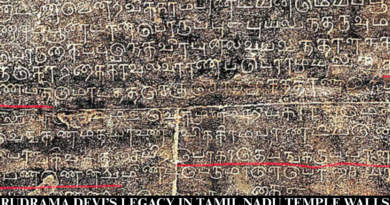“Sanathana and the Kumaras: Embodiments of Eternal Truth”
In Hindu mythology, Sanathana is one of the four Kumaras, the mind-born sons of Lord Brahma, the creator in the Hindu trinity. The Kumaras Sanaka, Sanatana (Sanathana), Sanandana, and Sanatkumara were created by Brahma at the beginning of time to help him with the process of creation. However, they chose the path of renunciation and devotion instead, opting for a life of celibacy and spiritual pursuit. Their decision not to participate in the worldly creation is seen as a powerful act of free will and spiritual dedication.
Sanathana and his brothers are portrayed as eternally youthful sages, often depicted as children to symbolize their purity and detachment from worldly desires. Despite their childlike appearance, they possess profound knowledge of the Vedas, Upanishads, and metaphysical truths. They are considered Jnanis (realized beings) and Brahmajnanis (knowers of the Absolute), who roam freely through all realms, including the heavens and the material world, to impart spiritual wisdom and guidance to seekers and even gods.
One of the most notable episodes involving the Kumaras, including Sanathana, is their visit to Vaikuntha, the abode of Lord Vishnu. When they attempted to enter, they were stopped by Vishnu’s gatekeepers, Jaya and Vijaya, which led to a confrontation. The Kumaras, angered by the obstruction, cursed the gatekeepers to be born as demons on Earth. This incident led to the birth of formidable adversaries like Hiranyaksha and Hiranyakashipu, and eventually Ravana and Kumbhakarna, tying the Kumaras indirectly to key events in the Puranic epics.
Sanathana and his brothers are revered not just as mythological figures, but as symbolic embodiments of pure consciousness and timeless wisdom. Their lives convey the message that true knowledge transcends age, form, and societal roles. By remaining celibate and immersed in spiritual contemplation, the Kumaras exemplify the ideal of detachment (vairagya) and self-realization (atma jnana). Sanathana, in particular, represents the eternal nature of truth and the unwavering path of dharma that exists beyond the cycles of creation and destruction.




